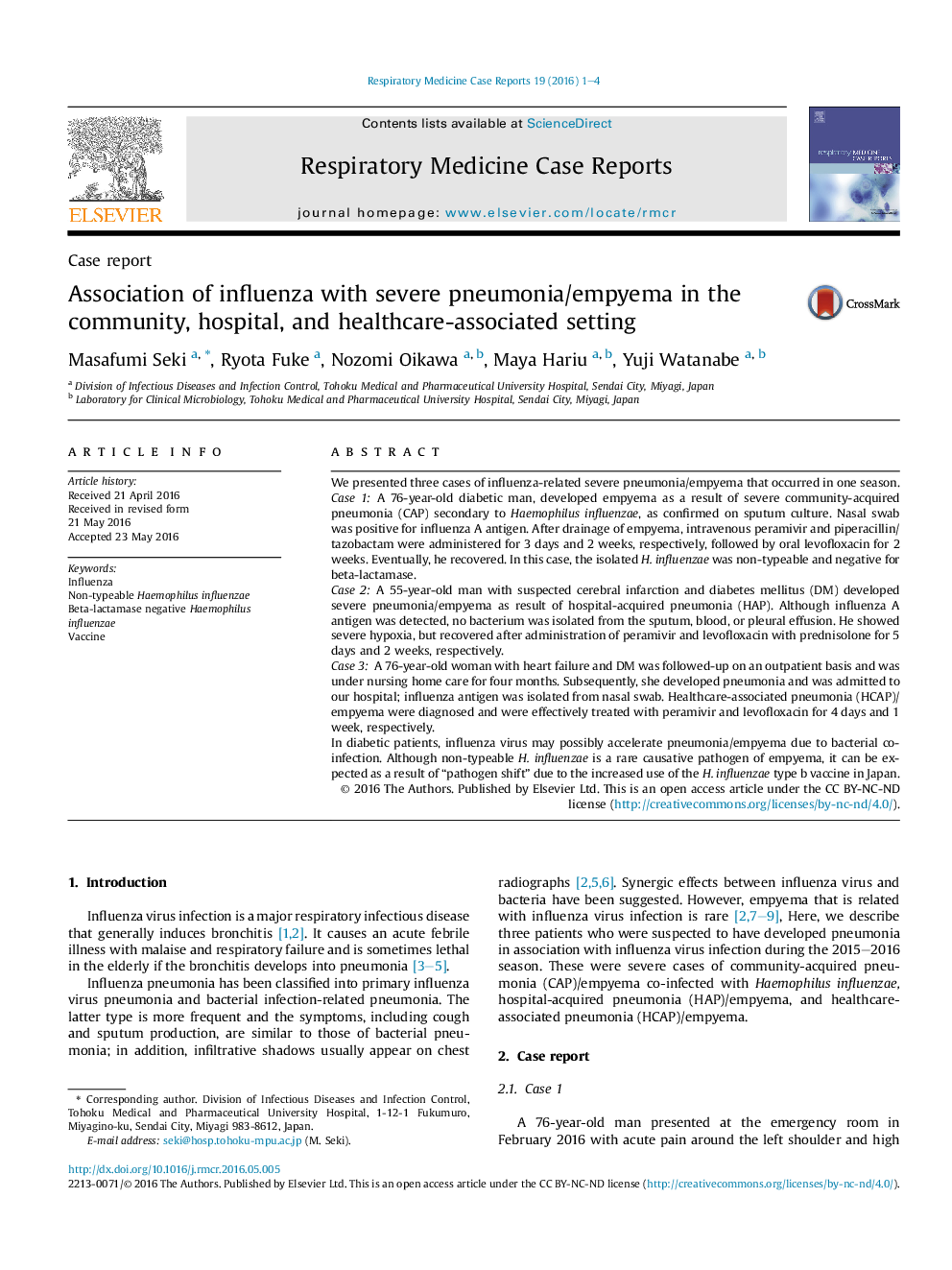| Article ID | Journal | Published Year | Pages | File Type |
|---|---|---|---|---|
| 4212552 | Respiratory Medicine Case Reports | 2016 | 4 Pages |
We presented three cases of influenza-related severe pneumonia/empyema that occurred in one season.Case 1A 76-year-old diabetic man, developed empyema as a result of severe community-acquired pneumonia (CAP) secondary to Haemophilus influenzae, as confirmed on sputum culture. Nasal swab was positive for influenza A antigen. After drainage of empyema, intravenous peramivir and piperacillin/tazobactam were administered for 3 days and 2 weeks, respectively, followed by oral levofloxacin for 2 weeks. Eventually, he recovered. In this case, the isolated H. influenzae was non-typeable and negative for beta-lactamase.Case 2A 55-year-old man with suspected cerebral infarction and diabetes mellitus (DM) developed severe pneumonia/empyema as result of hospital-acquired pneumonia (HAP). Although influenza A antigen was detected, no bacterium was isolated from the sputum, blood, or pleural effusion. He showed severe hypoxia, but recovered after administration of peramivir and levofloxacin with prednisolone for 5 days and 2 weeks, respectively.Case 3A 76-year-old woman with heart failure and DM was followed-up on an outpatient basis and was under nursing home care for four months. Subsequently, she developed pneumonia and was admitted to our hospital; influenza antigen was isolated from nasal swab. Healthcare-associated pneumonia (HCAP)/empyema were diagnosed and were effectively treated with peramivir and levofloxacin for 4 days and 1 week, respectively.In diabetic patients, influenza virus may possibly accelerate pneumonia/empyema due to bacterial coinfection. Although non-typeable H. influenzae is a rare causative pathogen of empyema, it can be expected as a result of “pathogen shift” due to the increased use of the H. influenzae type b vaccine in Japan.
